Uncategorized
-
 Science & Society
Science & SocietyIn research, detours are a key part of discovery
Editor in Chief Nancy Shute discusses the scientific process and the often contradictory research about Alzheimer's disease.
By Nancy Shute -
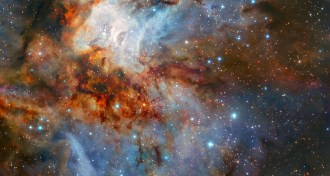 Astronomy
AstronomySee this star nursery shine in a stunning new infrared image
A newly released image of star cluster RCW 38 shows the intricate details of wisps of gas and dust surrounding newborn stars.
-
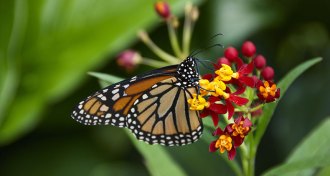 Climate
ClimateBloodflowers’ risk to monarchs could multiply as climate changes
High atmospheric carbon dioxide levels can weaken the medicinal value of a milkweed that caterpillars eat, and high temperatures may make the plant toxic.
By Susan Milius -
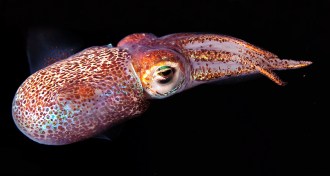 Life
LifeBobtail squid coat their eggs in antifungal goo
Hawaiian bobtail squid keep their eggs fungus-free with the help of bacteria.
-
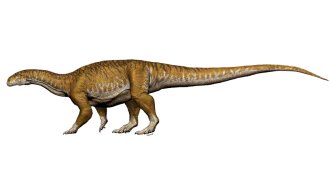 Paleontology
PaleontologyLong-necked dinosaurs grew to be giants in more ways than one
Some early relatives of giant, long-necked sauropods may have used a different strategy to grow to colossal sizes than previously thought.
-
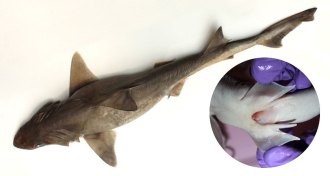 Animals
AnimalsSurprise! This shark looks like a male on the outside, but it’s made babies
External male reproductive organs hid internal female capacity to give birth among hermaphrodite sharks in India.
By Yao-Hua Law -
 Health & Medicine
Health & MedicineAir pollution is triggering diabetes in 3.2 million people each year
A new study quantifies the link between smoggy air and diabetes.
-
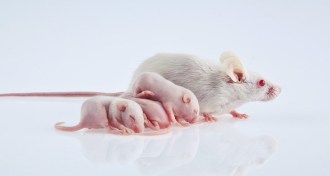 Neuroscience
NeuroscienceVaginal microbes in mice transfer stress to their pups
During birth, microbes from a stressed mouse mother can carry some aspects of stress to her offspring.
-
 Chemistry
ChemistryHow a particle accelerator helped recover tarnished 19th century images
Chemists used a synchrotron to peek beneath 150 years of grime on damaged daguerreotype images, revealing hidden portraits.
-
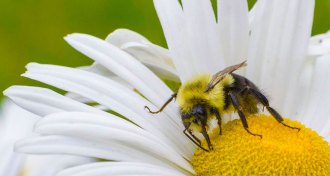 Animals
AnimalsWhy humans, and Big Macs, depend on bees
Thor Hanson, the author of Buzz, explains the vital role bees play in our world.
-
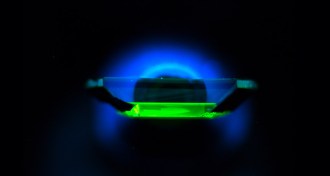 Materials Science
Materials ScienceDesigner diamonds could one day help build a quantum internet
A new design in artificial diamonds stores and releases quantum information better than others.
-
 Earth
EarthKilauea’s spectacular pyrotechnics show no signs of stopping
Watch some of the most striking videos and images of the strange, fiery beauty of the Hawaii volcano’s ongoing eruption.